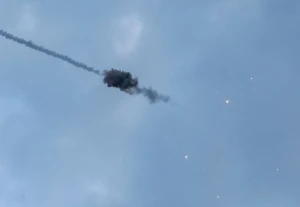
Ukrainians' belief in victory reflects “complacency” in the rear — psychologist Voloshyna
Journalist and psychologist Larysa Voloshyna commented on the results of a survey that showed that 83% of respondents believe in Ukraine's victory
She shared her opinions with Espreso TV.
"This belief may stem from a sense of confidence, such as the thought: 'Well, we will win anyway. Why should I go there? I'm contributing on the economic front, the cultural front, or even on other fronts like family or gender.' For some individuals, this belief may also reflect the perception that there is no immediate danger. However, when we speak with people on the front lines, we see that the situation is incredibly difficult. The issue lies not with the weapons, but with the people. There are many defections, even among military personnel who are not cowards and who fought during the ATO (Anti-Terrorist Operation launched by Ukraine in 2014 - ed.). People are motivated, but they simply no longer have the strength to continue," she said.
Larysa Voloshyna believes that society has been lulled into complacency in the rear.
"And this is the moment: there are no people, we need people on the one hand. On the other hand, we see a society that ignores this very danger. Each time, there are a bunch of other reasons why Ukraine has not yet won, and we are not having coffee in Yalta. It's corruption, it's our Western partners, it's the wrong laws, it's the wrong mobilization. All this is necessary in order, firstly, to absolve oneself of responsibility, and, secondly, to deny the issue of danger, because mobilization and impetus: 'I have to go and fight.' The impetus to fight is a reaction to danger, and, in my opinion, society is lulled in the rear. And these beliefs and feelings: 'Everything is fine, everything is according to plan, we believe that everything will be fine, so we don't get distracted by the war, we go about our business,'" the psychologist added.
On October 16, a survey revealed that 83% of Ukrainians are confident in Ukraine's eventual victory in the war, while 11% of respondents hold the opposite view.
- News












































